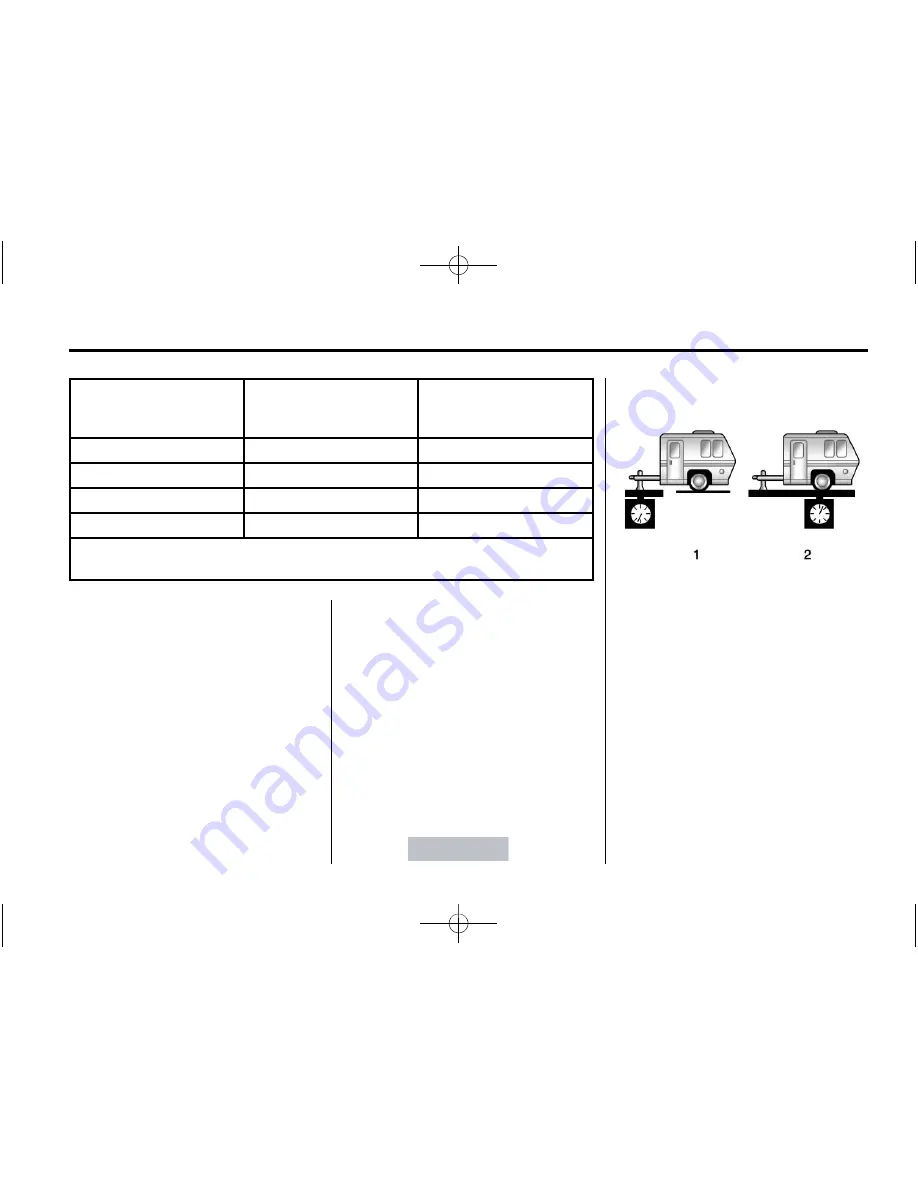
Black plate (57,1)
GMC Terrain/Terrain Denali Owner Manual - 2013 - crc 1st edition - 5/8/12
Driving and Operating
9-57
Vehicle
Maximum Trailer
Weight with Trailer
Brakes
†
GCWR*
2.4L L4 Engine, FWD
680 kg (1,500 lbs)
2 625 kg (5,787 lbs)
2.4L L4 Engine, AWD
680 kg (1,500 lbs)
2 700 kg (5,952 lbs)
3.6L V6 Engine, FWD
1 588 kg (3,500 lbs)
3 600 kg (7,937 lbs)
3.6L V6 Engine, AWD
1 588 kg (3,500 lbs)
3 700 kg (8,157 lbs)
†
For trailers without trailer brakes the maximum trailer weight is 454 kg
(1,000 lbs). See
Towing Equipment on page 9
‑
58
.
*The Gross Combination Weight
Rating (GCWR) is the total
allowable weight of the completely
loaded vehicle and trailer including
any passengers, cargo, equipment
and conversions. The GCWR for the
vehicle should not be exceeded.
Ask your dealer for our trailering
information or advice.
Weight of the Trailer Tongue
The tongue load (1) of any trailer is
an important weight to measure
because it affects the total gross
weight of the vehicle. The Gross
Vehicle Weight (GVW) includes the
curb weight of the vehicle, any
cargo carried in it, and the people
who will be riding in the vehicle.
If there are a lot of options,
equipment, passengers or cargo in
the vehicle, it will reduce the tongue
weight the vehicle can carry, which
will also reduce the trailer weight the
vehicle can tow. If towing a trailer,
the tongue load must be added to
the GVW because the vehicle will
be carrying that weight, too. See
Vehicle Load Limits on page 9
‑
14
.
If a weight-carrying hitch or a
weight-distributing hitch is being
used, the trailer tongue (1) should
weigh 10 to 15 percent of the total
loaded trailer weight (2).
After loading the trailer, weigh the
trailer and then the tongue,
separately, to see if the weights are
proper. If they are not, adjustments
might be made by moving some
items around in the trailer.
Trailering may be limited by the
vehicle's ability to carry tongue
weight. Tongue weight cannot cause
the vehicle to exceed the GVWR
















































